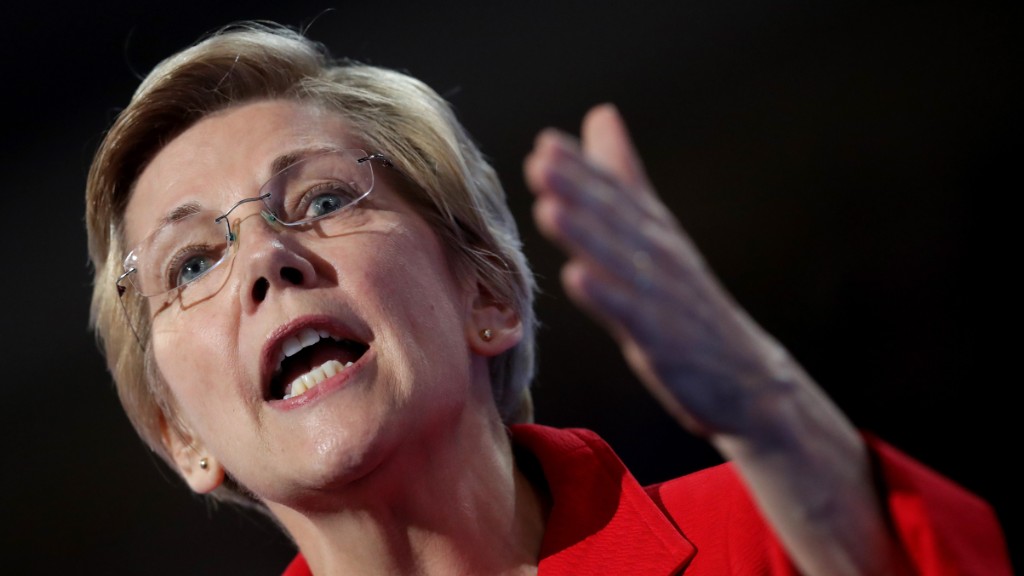
Treasury Secretary Steven Mnuchin wants Congress to expand his powers, giving him more influence over the Trump administration's efforts to loosen regulations governing Wall Street and other financial institutions.
Tucked among dozens of recommendations in a report released by the Treasury Department Monday is a request to expand Mnuchin's authority as chairman of the Financial Stability Oversight Council, a regulatory group created under the 2010 Dodd-Frank financial reform law.
Monday's regulatory review is one of four reports the Treasury will deliver as part of an executive order by President Trump to review how best to loosen the regulations governing the U.S. financial system.
The president's executive order has already put Mnuchin and the Treasury in the driver's seat by tapping the agency to oversee the regulatory assessment. The review will ultimately serve as a framework for the Trump administration when they appoint personnel to top regulatory posts -- a process that has so far stalled.
Related: Trump is crippling his agenda by leaving top jobs unfulfilled
In its 150-page report, Treasury asked Congress to approve a change to the 2010 Dodd-Frank law in order to allow the Treasury secretary "to play a larger role in the coordination and direction of regulatory and supervisory policies." That could mean Mnuchin would be in charge of deciding which regulator should take the lead in cases where there may be overlap or conflicts between agencies.
"[The Financial Stability Oversight Council] should not be a replacement for regulators," Mnuchin said Monday during testimony to the House Appropriations Committee. But he said the council could "make sure regulators are working together to deal with overlap."
Craig Phillips, a counselor to Mnuchin, tried to downplay the agency's power grab, saying the intent of expanding the council's powers is to focus "on overlap and inconsistent guidance" by multiple regulators.
"We're not trying to grow the institution of FSOC," Phillips said, speaking at a conference hosted by The Clearing House Association and SIFMA on Tuesday. He noted that there are no plans to grow the council's staff.
The 2010 Dodd-Frank law created the FSOC to identify risks to the financial system, including designating non-banks as systemically important; eliminating expectations that the government will bail out a firm; and responding to emerging threats. The council is also responsible for labeling firms as risky -- an authority the president has asked Mnuchin to review.
Related: Trump gives banks a lot of what they want
Margaret Tahyar, a partner at law firm Davis Polk & Wardwell, said greater oversight over regulators to reduce complexity and improve coordination is "a good role for the FSOC."
Republican Senator Mike Crapo, the ranking member of the Senate Banking Committee, also threw his support behind plans to allow FSOC to coordinate among numerous agencies in crafting rules.
"It at least forces consistency and can bring an answer so the regulated have one rule to follow instead of five," Crapo said, following the TCH-SIFMA conference Tuesday.
The last eight years have proven how painstaking it can be to coordinate multiple agencies. It took three years for five federal agencies to craft the Volcker rule, a ban that would prohibit banks from gambling with U.S. taxpayer dollars. Regulators also spent more than five years working on post-crisis Wall Street compensation rules, which have yet to be finalized.
"There's an institutional impetus of the Treasury secretary to make the FSOC more powerful not less," said David Portilla, a partner at the law firm Debevoise & Plimpton, who served as a senior policy adviser to the FSOC in 2012 and 2013. "It's the one lever they have over the other independent regulatory agencies."
Still, there are limits to Treasury's powers. They don't have the authority to write rules. That responsibility instead falls to five agencies, including the Federal Reserve Board, the Federal Deposit Insurance Corp. and the Office of the Comptroller of the Currency.
Mnuchin has said he has maintained the long tradition of having weekly meetings with Janet Yellen, the Fed's chairwoman, and the two have spoken extensively on possible regulatory changes. He said he has also engaged regularly with top regulators at the agencies as part of the department's initial review.
"A lot of the recommendations could eventually become policy because many can be implemented by regulators," said Ian Katz, a policy analyst with research firm Capital Alpha, in a note to clients. "Over time, more of those regulators will be Trump nominees who share many of the opinions in the report."
Related: Trump signs orders that take aim at Dodd-Frank
Former Treasury and Federal Reserve officials also warn that any further delays by the White House to fill posts at the Fed and other federal agencies will wind up putting more power in Treasury's hands.
So far, the president has nominated only 10 individuals to serve in critical posts in charge of economic policy, international affairs, and terrorism financing at the Treasury Department, according to the Partnership for Public Service, a nonprofit, nonpartisan organization, which has tracked presidential appointments since 1989. Only one has been confirmed: Mnuchin.
The president has yet to fill three spots on the Federal Reserve Board, including a regulatory czar. He's appointed Joseph Otting, a former chief executive of OneWest Bank, to be the next comptroller of the currency.
"A delay in filling the Fed posts only makes the Treasury stronger in this deregulatory effort," said Oliver Ireland, a partner at Morrison & Foerster and a former Fed official. "In a political sense, it only enhances their positions."


